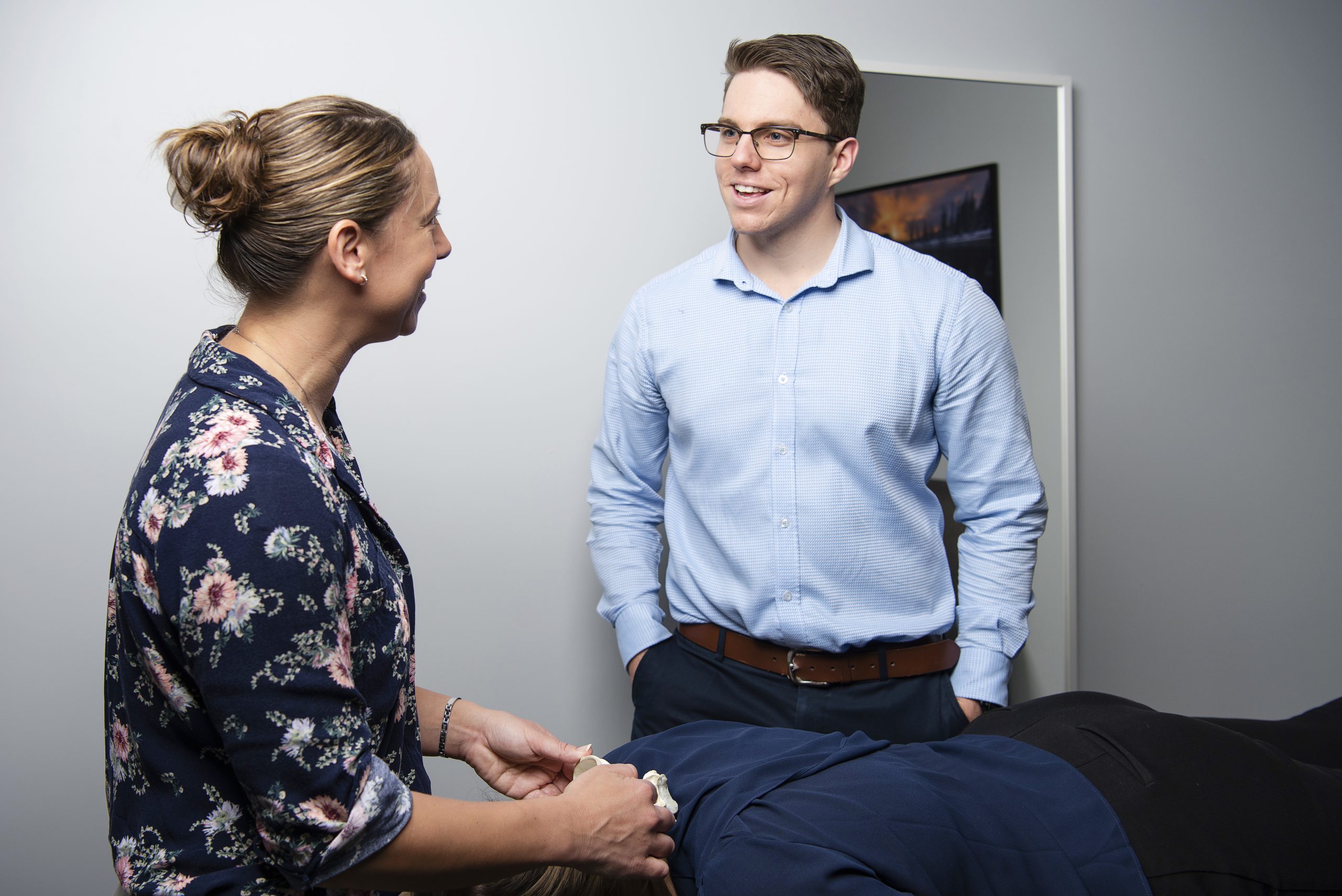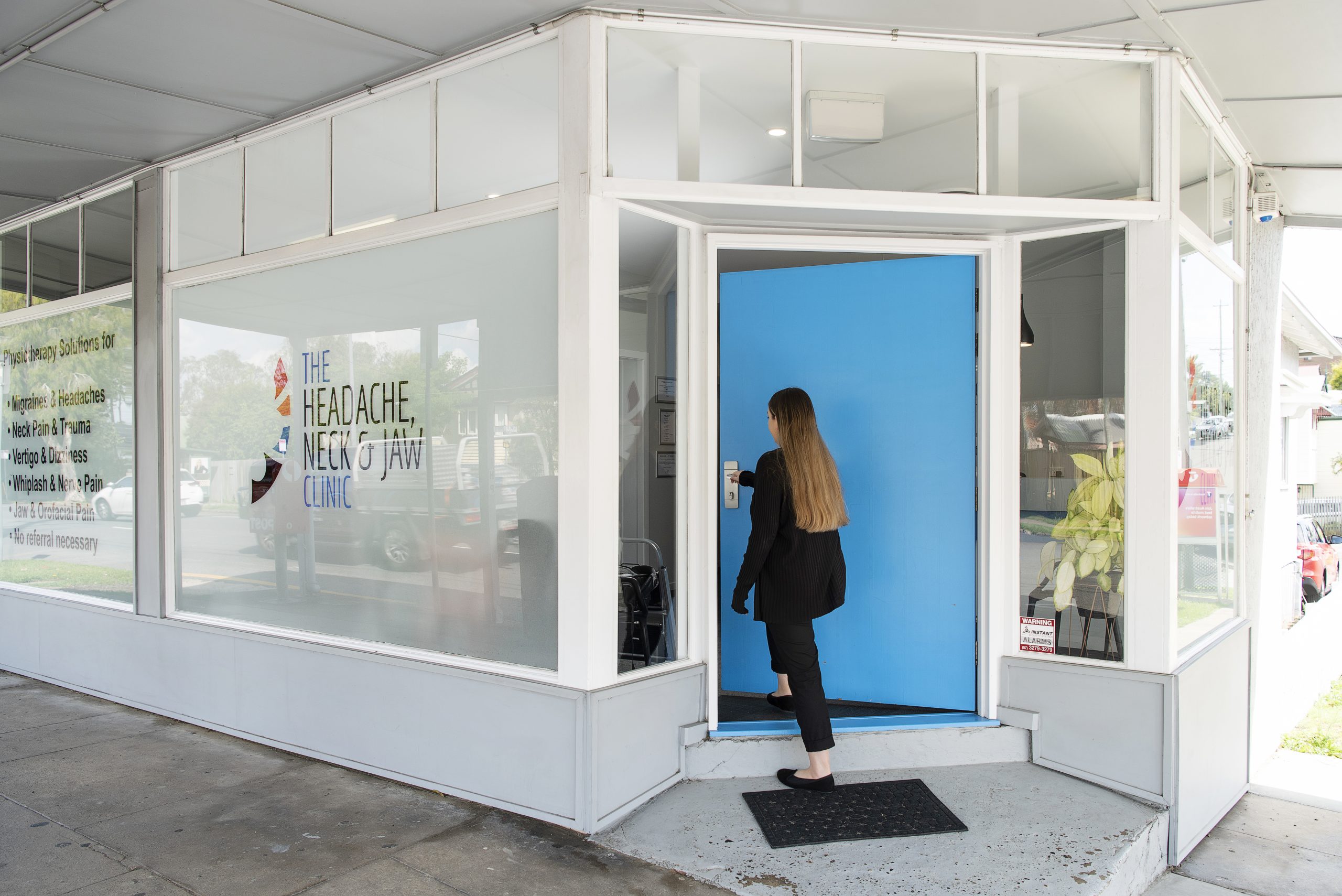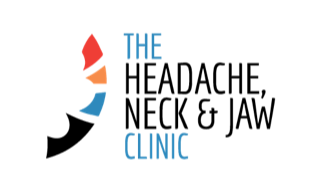Referrer Information

Patient Referral Form
To refer a patient onto our clinic for assessment or treatment, please complete the form below and we'll get back to you as soon as possible.
Book an Appointment
If you’re experiencing pain or discomfort then don’t put it off - contact our friendly team today to make an appointment with one of our expert physiotherapists.
Headache, Neck & Jaw Conditions We Treat
Our Brisbane and Gold Coast clinics specialise in the treatment of head, neck and jaw conditions, many of which are notoriously difficult to treat. If you’re experiencing symptoms of any of the following problems, our team has the expertise and training to help.
Headaches
Migraines
Jaw and Orofacial Pain
Neck Pain and
Trauma
Whiplash and Nerve Pain
Vertigo & Dizziness
Concussion
Singing / Vocal
Therapy
Research
The expert team at The Headache, Neck & Jaw clinic are committed to remaining at the forefront of our industry, and we regularly partner with researchers and universities that are performing studies in our areas of expertise. You can find more details about our involvement in current and past research projects below.
The role of the pain system, the neck and psychological factors in those with headache after a traumatic brain injury
Researchers from the School of Allied Health Sciences, Griffith University (Nathan campus, Brisbane), in consultation with The Head, Neck and Jaw Clinic, Brisbane, are currently undertaking research into headaches after a mild traumatic brain injury/concussion.
Headache is the most common and often longest lasting symptom following mild traumatic brain injury (TBI) or concussion. What causes headaches to persist after a mild TBI or concussion remains largely unknown. This study aims to identify changes in the pain system that may contribute to persistent headache after a mild TBI or concussion. This study will also examine the joints and muscles of the neck, individual thoughts about pain, and sleep quality, as these factors may also contribute to the development of persistent headache after a mild TBI/concussion.
What's Involved?
The project will involve one (1) testing session, requiring a total time commitment of approximately 90-minutes.
Testing will occur at the School of Allied Health Science’s Research Laboratory, Griffith University, Nathan Campus, 170 Kessels Road, Nathan QLD 4111. Parking will be provided free-of-charge, whilst participating in the study.
Testing will involve:
Questionnaires
Sensory tests: response to pressure and light touch
Dynamic pain modulation tests: measures of the body’s ability to modulate pain
Neck muscle and joint tests routinely used by Physiotherapists
Benefits of the research project?
Participation in this project will not provide you with a physiotherapy assessment or treatment session. However, results from this study will add to the body of knowledge regarding persistent headaches following a mild TBI/concussion.
Will Treatment or Privacy be Compromised?
Your treatment at the clinic will not be compromised by participating in the study. Participation in this study is completely voluntary. You are not under any obligation to participate. If you agree to participate, you can withdraw from the study at any time without adverse consequences. Non-participation or withdrawal will not affect any ongoing treatment you may be having.
Participant privacy is maintained at all times throughout the study. All results collected will be de-identified prior to analysis. The results of this study may be published in journals and presented at conferences, but individuals will not be identified. Individual results may be provided back to your treating physiotherapist, only with your consent.
Who do I contact if I have questions about the project?
Should you have any questions regarding the nature of the research, please feel free to contact Margot Sexton (Student Investigator, Doctor of Philosophy Candidate), who will be happy to provide you with more information.
I want to participate! How do I sign up?
If you are interested in participating in this study, please contact Margot Sexton via phone or email.
Margot Sexton
Tel: 0408 883 099
Email: margot.sexton@griffithuni.edu.au
Thank you for your interest in this research project.
Margot Sexton (Student Investigator)
Prof Julie Hides
Dr Dilani Mendis
Dr Andrew Gardner
Dr Leanne Bisset
THE EFFECTIVENESS OF A 6 WEEK COURSE OF PHYSIOTHERAPY TREATMENT ON CONDITIONS AFFECTING THE NECK & JAW
Our clinic previously undertook research into the effectiveness of a 6 weeks course of physiotherapy treatment on conditions affecting the neck & jaw. Following this study, our aim is to generate a publishable paper detailing the change in pain levels and range of motion after a 6 week treatment period. This will also identify clinical patterns which will help diagnose the cause of headache, neck or jaw pain.
What's Involved?
There will be a series of surveys given both pre & post treatment. The surveys given will depend on assessment with the Physiotherapist. Most of the surveys will be emailed and can be completed at home. They have been designed to take less than 2 minutes each so that it is not a big time commitment. These surveys will be completed at first assessment and 6 weeks following first assessment. These initial results will allow us to contrast the change in range of motion with the change in the survey scores. There is also an option to review at 3 months & 6 months to determine the longer term effects of treatment.
Will Treatment or Privacy be Compromised?
Treatment will not be compromised by participating in the study as we are not trialling any new techniques but instead, are quantifying the overall effect of our existing treatment structure on pain and/or movement restrictions. As it is an in-clinic trial, there is no placebo treatment or blinding of the Physiotherapists. Privacy is of the utmost importance and all patients will be de-identified.
Opt Out
Patients can opt out of the trial at any stage and participation in no way affects their right to choose their health provider, and is in no way a contract locking the patient into unnecessary or unwanted treatment. If the treatment does not take 6 weeks or if the patient chooses not to/are unable to continue with treatment, an email will still be sent at the 6 week mark with a link to complete the second round of surveys. Any data that is collected is meaningful and will help us determine the best treatment plans for the future.
THE EFFICACY OF HANDS ON TREATMENT FOR TEMPOROMANDIBULAR DYSFUNCTION (TMD) TO REDUCE PAIN AND OTHER ASSOCIATED SYMPTOMS
2016: Pilot Study
In 2016, The HNJ Clinic launched a provisional trial to determine the effect of physiotherapy on jaw range of motion and pain. We asked our patients who identified as suffering from Temporo-Mandibular Dysfunction (TMD) to complete a Temporomandibular Joint Disability Index (TMJDI) Survey (a validated research tool). We then measured their active opening range of motion of their jaw to get an objective baseline measure to correlate with the results of the TMJDI. The patient received treatment for their condition for 6 weeks with their range of motion being re-measured weekly and TMJDI re-taken at the 6-week mark.
Our results were better than expected. On average, the range of motion changed from 30mm to 45mm of opening and the TMD disability scores reduced from 13 to 6. What was more interesting is that of the 77 participants who were diagnosed as or self-identified as TMD sufferers, 57 actually were diagnosed by their treating physiotherapist as having a cervical spine primary cause of their pain and had treatment directed predominantly to their neck. Treating the cervical spine still had a positive effect on the TMJ disability index scores (with no significant change in jaw range) but not as big an effect as the 20 participants who received only jaw treatment.
Does Physiotherapy Help TMJ Pain?
Yes. It also helps headaches. Our results show a 50% increase in range of motion over a 6-week period with a statistically significant reduction in reported pain. Our study was distorted by not correctly identifying neck vs jaw conditions, which made our results look worse than they are. If we had of excluded necks from our jaw study, the TMD Score would have gone from an average of 16 to an average of 5. This is an incentive to remodel our study in 2017.
Is measuring range of motion helpful in diagnosing jaw problems?
Yes. Of the 20 patients who exclusively received jaw treatment, only 1 participant started with more than 40mm of opening range, with an average opening range of 30mm. Of the group who received neck treatment, only 1 patient started with opening range of less than 40mm with the average opening range equaling 45.
From this, we can use range of motion as a clinical indicator to predict whether jaw pain is originating in the neck or coming from the jaw. Further study is required to more accurately determine the exact tipping point, but it appears 40mm is a good guideline.
Can we Change the World Based on These Results?
No, sadly, more research is required. We need to make our study more robust and determine a research model that can ultimately be published in the appropriate medical journal. It’s a good start though.
In 2011, treatment results from 50 consecutive patient's were analysed, looking at initial range of motion before treatment and subsequent opening range of motion over the next 6 appointments.
Initial opening movement measurements ranged from 15.6mm to 40mm.
Range of motion overall improvement ranged from 4.5mm to 33mm.
Treatment techniques used included caspular stretches, neuro-muscular releases, postural retraining for the neck and mouth, cervical spine releases and education.
Results can be seen below:
Book Your Appointment Now!
Get in touch with us today for more information on our services or to make an appointment with our friendly team.


